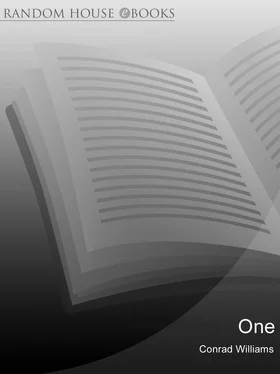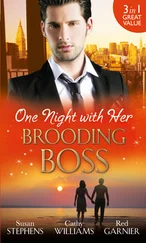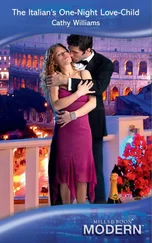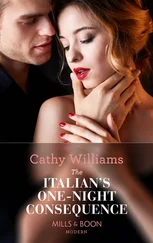'Aw.'
'Come on, you're a big boy now. You can walk.'
'Where's the car?'
'Broken.'
'You broked it?'
'No. Something happened. All the cars broke.'
'What about motorbikes?'
'Them too.'
'Are motorbikes faster than cars?'
'Some.'
'Are motorbikes faster than cheetahs?'
'Oh yes.'
'Are cheetahs faster than swordfish?'
'We'll never know. Where's your mum?'
'I don't like girls.'
'You might, one day.'
'Boys are best.'
'We have our moments.'
He looked down to his side where Stanley was walking, but he had gone. Jane inspected his hand, as if he might see some ghost of his son enclosed within it, but there was just the usual network of filth and blisters.
He could no longer hear the ocean. He doubted he ever could, beyond its persistent echo in his thoughts. You lived and worked on the sea for long enough you heard its call when you were in the deepest parts of the inner city. You never forgot its voice. He had stopped. He was looking towards the coast, which was lost behind some urban pile that might have been Sunderland, Hartlepool or Middlesbrough. The only thing that shored up the misery was the way in which the land was condensing; there were fewer open tracts between cities. The bucolic sprawl towards Scotland was giving way to the industrial claustrophobia of the North-East.
He sat down in the road, listening to the squeak and burble of fluid in his lungs. He thought of eating something and his stomach flinched. He kept walking. His eyes streamed so that the view through his smeared goggles was of a world of splinters that he had to fight to keep vaguely horizontal. The wind bullied the clouds along, but there was never a break in their ceiling. The sun was a piss stain on a grey blanket. The ceiling lowered; its colour deepened. After an hour he saw lightning stab the earth maybe twenty miles to the west. Thunder concussed the air around him. He sensed rain building long before he felt it. When it came it was tropical. Large bullets pelted him. He took refuge in a barn on the edge of a field where rape might once have blazed but was now only so much ash and stubble. Farm machinery stood like some pathetic exhibition of past glories. Already the shape and purpose of such vehicles struck him as faintly ridiculous. He couldn't remember the sound an engine made. The howl of the wind and the memory of surf was a white noise that erased all others. He poured water from the bladder into a metal cup tied to one of the rucksack straps and added four soluble painkillers. He downed it before it was ready, crunching on the tablets and feeling them fizz on his tongue. Almost immediately a coughing fit caused him to bend double; he had to put out a hand to steady himself against dizziness, the scatter of light seeds across his vision. He hawked and spat. No blood, at least. Not yet.
He forced himself to eat: a small can of macaroni cheese, a small can of pineapple rings. The food rolled uneasily around; he lay on his side in swatches of straw that, if he pushed his face in far enough, smelled of childhood. He closed his eyes, concentrating on not vomiting. After a while he felt better, and realised that he must have slept: the fingers of light were pointing a different way through the cracks in the barn door. He sat up and a gruel of heat behind his sternum spread through the base of his lungs. It was a strange feeling, an itch deep inside him. He wondered if this was cancer's beginning; after all, he couldn't expect to escape every kind of physical repercussion.
Jane checked in his rucksack but there was nothing to help beyond the painkillers and a packet of blackcurrant-flavoured throat lozenges. Tired of cold food, he cleared a space and built a fire out of straw. He broke off some decaying slats of wood from the apron of the barn and positioned them above his kindling. He poured a little of the glycerine and potassium permanganate onto the straw. A couple of seconds later they combusted. He felt a tremor of the thrill he used to get as a child whenever he saw good magic being performed. 'Good work, Dr Becky,' he said. The words came out on razor wire.
He punched holes in the lids of cans of potatoes and stewing steak in gravy and placed them on the edge of the fire. He thought of hot baths and warm beds while he watched the food bubble, and ate with his fingers, juggling the scalding meat around his mouth and blowing out his cheeks. He blistered the roof of his mouth, but it was a good pain. He ought to cook more of his food; it improved it no end and it gave a brief illusion of normality.
He sucked his fingers clean and lay back in the straw. He watched the flames turn to embers. He was asleep again before the embers had lost their blush.
Jane woke up cold and stiff. There seemed to be no change to the burning in his chest. At least he had suffered no nightmares in the night, or he had failed to remember them. He palmed some water from the bladder and washed his face, his hands scraping against stubble. Bearded again soon. He gingerly felt the wound in his head. It seemed to be healing well. He refreshed the dressing and carefully pulled the beanie down over it.
He shouldered the backpack, repositioned the mask and goggles, and opened the barn door. He looked out at the bewarted, bewitched landscape and ran his tongue over furred teeth. The rain was still there but it had lost its muscle. Skeins of it hung like barrage nets. Hills slouched away from the road like the bellies of downed comeback boxers. Pylons marched into the mist, their cables impotent. A febrile, feral country now.
The sky seemed a little lighter towards the south. He rejoined the A1 and fixed his eyes on a point on the ground four feet or so further on than the extent of his step. He did not look up for three hours.
Jane's coughing had worsened. Each convulsion caused a flare of pain in his chest. He thought that if he contracted pneumonia he would die.
He got off the road and made his way to the black crust of a town. Rooftops shivered with soot. A church steeple had been shattered; buckled ribs thrust out of it like the exposed frame of a burnt corset. Tree limbs and human limbs lay in his path, burnt into solid, fissured cords of carbon. Arse-end retail parks. Computer palaces offering any combination of frazzled, corroded processors and silicon chips. Deep-fried chicken for deep-fried customers. A supermarket the size of a small airport.
Jane trudged, coughing, across the car park. Litter wheeled around him. A dent in the wall suggested that the wind had lifted heavier things in the recent past. Something thin grinned at him by the trolleys like a portion of hide draped on a chair to dry out in the sun. He paid it no heed. He bypassed calcined ranks of dead whose last act had been to queue for lottery tickets. It might be you . It was.
The supermarket had been rifled. The perishables had cooked, melted and rehardened into their plastic baskets. Most of the tinned produce was gone. That which remained was fouled in some way. He got on his knees and checked underneath the shelves. He fished out some cans that seemed fine. Sardines, mushroom soup, tomatoes in herbs. He put them in the rucksack. He found more canned goods in the infant section that had been ignored or more likely unseen. Puréed spinach and apple. Apricot and vanilla custard. Sweet potato, rice and butternut squash. He was aiming to reach the top of this aisle and turn into the next when he heard a boot grind into glass. To his right, a little behind him. He snapped his head that way, and pulled the reins on a cough. He froze.
After a few seconds he heard another step. Something shadowing his movements. Jane immediately turned and began creeping back the way he had come, his head turned to the left now, eyes burning into the empty shelves as if he could see his pursuer through the moulded steel. He tried to remember if he had made any noise beyond the gentle clacking of cans as he stowed them in his rucksack. He shot a glance towards the end of the aisle, panic rising, certain that he was surrounded. He had to face the possibility that not every survivor was a potential ally. Desperation drove people to do extraordinary things, not all of them laudable. He had made a mistake, been too blasé. He must be more diligent in future, if he had one.
Читать дальше












